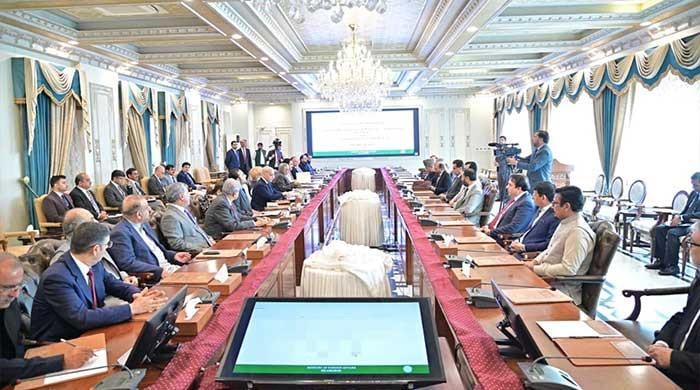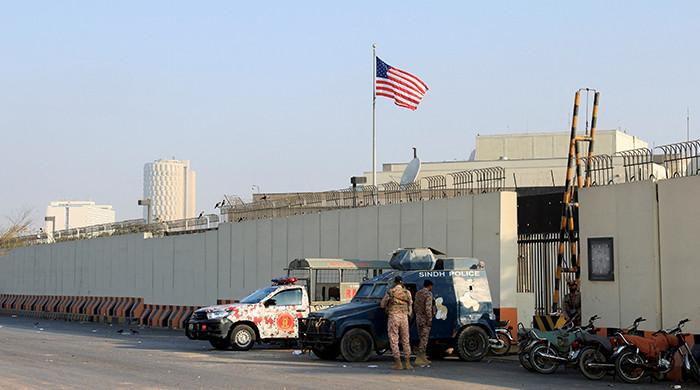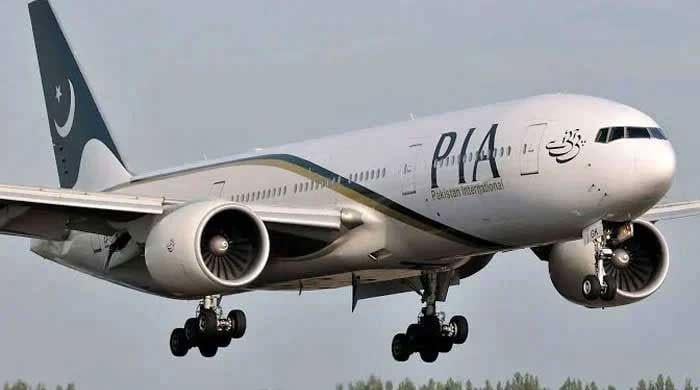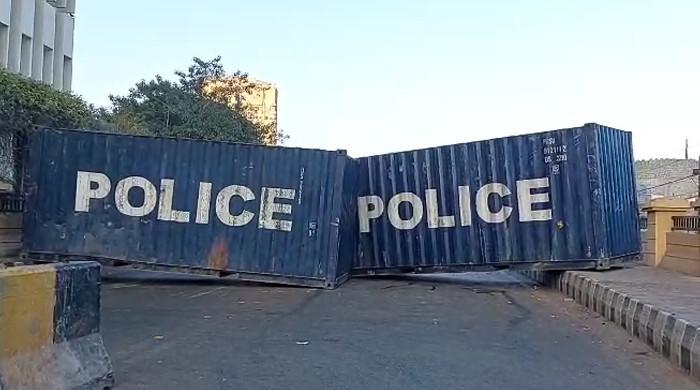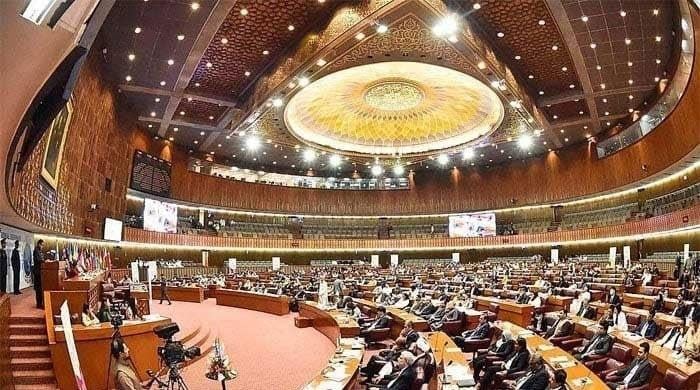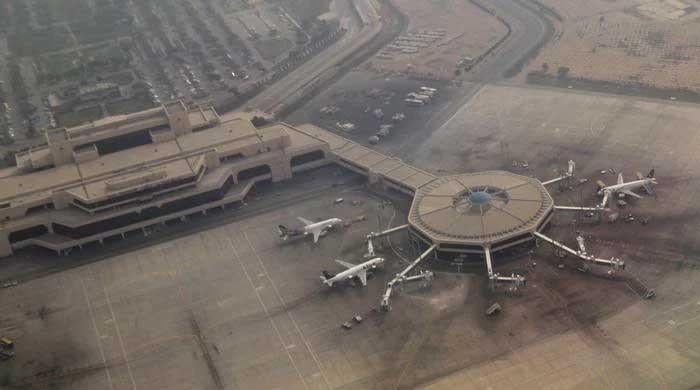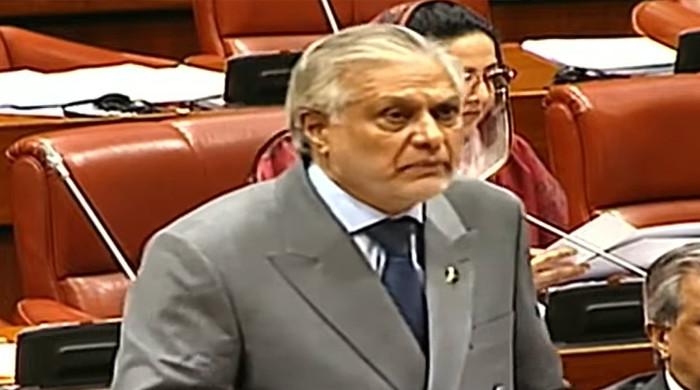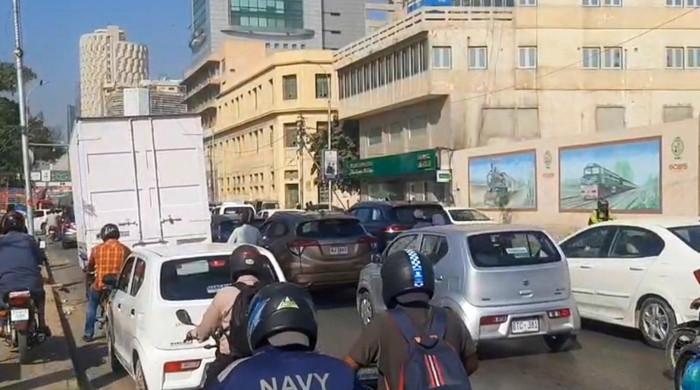Pakistan US envoy warns of 'nuclear interface' if tensions flare
Ambassador Sheikh says President Donald Trump can play role in resolving standoff between two countries
May 03, 2025

- Rizwan Saeed Sheikh describes region as "nuclear flashpoint".
- Terms India's response as "dangerously premature, inflammatory".
- "We want peaceful neighbourhood," adds ambassador to US.
Pakistan’s Ambassador to the US, Rizwan Saeed Sheikh, has urged President Donald Trump to intervene and help de-escalate rising tensions with India while warning that "any misadventure or miscalculation can lead to a nuclear interface".
Speaking to Fox News Digital, the ambassador described the region as a "nuclear flashpoint", suggesting that President Trump could play a role in resolving the standoff between the two nuclear armed countries.
"It could be an important part of President Trump’s legacy to attend to this situation, not with a sticking-plaster solution, but by addressing the core issue — the Kashmir dispute," he said.
Saeed criticised India’s response to the Pahalgam attack in Indian Illegally Occupied Jammu and Kashmir (IIOJK), calling it "dangerously premature and inflammatory".
“Within minutes of the attack, India began levelling accusations against Pakistan,” he said, noting that a post-investigation report was filed just 10 minutes after the incident occurred, despite the remote and rugged terrain near the scene.
The ambassador warned that the region, home to over 1.5 billion people, is once again being held “hostage to the war of hysteria” by India’s government and media, who immediately “began beating war drums.”
He cited Pakistan’s request for evidence linking it to the attack and Islamabad’s offer to participate in a neutral, transparent inquiry — both of which he said have gone unanswered.
“Any misadventure or miscalculation can lead to a nuclear interface,” the ambassador said. “That is certainly not desirable in such a densely populated region.”
The ambassador said those suspected are reportedly Indian nationals whose homes have already been raided. He questioned why India is looking outside its borders rather than addressing what he characterised as “administrative inadequacies” in Jammu and Kashmir.
He also criticised India’s broader policies in Kashmir, including the settlement of non-residents into the region, and threats to unilaterally block water flows from Pakistan’s rivers — a move he said violates the long-standing Indus Waters Treaty.
"That is as grossly illegal as it can get," said Saeed, adding: "This is one treaty that has withstood wars between India and Pakistan".
Pakistan has said they would consider the cutting off of water supplies an act of war — and made pleas to The Hague, accusing New Delhi of water terrorism. The ambassador called on nations around the globe to help with a lasting settlement.
"Previously, when the situation has been at this level or the tensions have escalated, the international community has attended to the situation, but taken their eyes, their attention away, even before the situation could fully defuse," said Saeed.
"This time, perhaps it would be […] timely in terms of the situation elsewhere on the globe, with similar instances, which one can note and see and are being attended to to perhaps not afford a sticking-plaster solution, but to address the broader problem".
Saeed said Pakistan has lost anywhere between 70,000 and 90,000 lives over the past 20 years to terror attacks. "We cannot afford any instability in the neighbourhood," he remarked.
"We want a peaceful neighbourhood. But as we have been repeatedly mentioning at all levels, leadership level and all the other levels, that we want peace, but that should not in any way be misconstrued as a sign of weakness. We want peace with dignity," added the ambassador.




